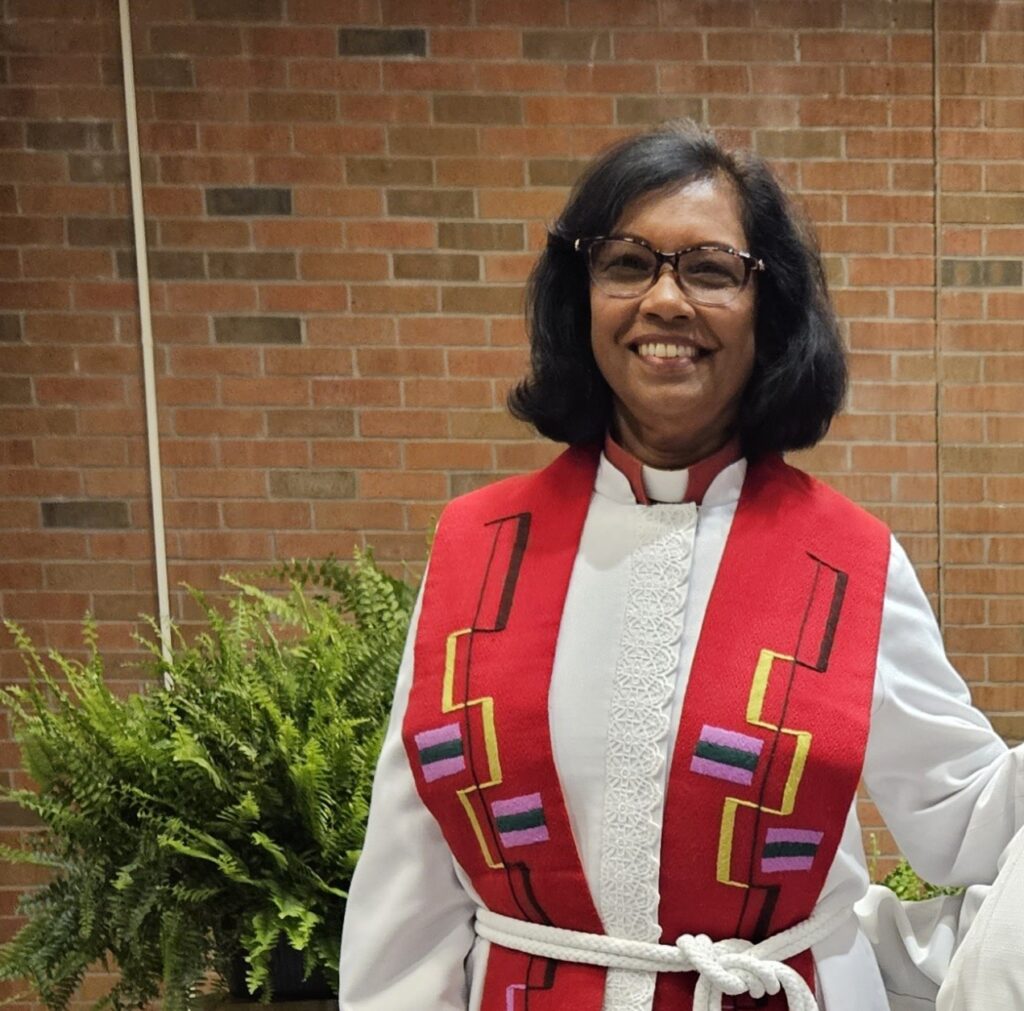Rev. Dr. Margaret MacDonald DMin ’05 on International Ministry

Rev. Dr. Margaret MacDonald, who earned her DMin from LSTC in 2005, is a recently retired pastor from the United Church of Canada. With a breadth of international ministry experience, Rev. MacDonald embodies what it means to work for peace and justice in the world. Read on to learn more about how LSTC prepared her for her ministry, and what advice she has to offer those just starting out.
What is a moment from your career in ministry you feel particularly proud of?
I am proud of many moments in my ministry career. One that I cherished very dearly was being the LWF (Lutheran World Federation) intern to the United Nations Human Rights Commission 50th anniversary in Geneva. As an intern, I attended the commission meetings for six weeks and read three statements on behalf of LWF. It was an educational experience on how the commission functions within the wider UN organization and the role of NGOs. Later in my career I visited Methodist Central Hall, London, UK where the 1949 UN statement was ratified, at Church House.
How did your time at LSTC prepare you for your ministry?
LSTC widened my perspective on ecumenical relationships with other religious communities and justice work. The location of LSTC also provided a wide scope of community relationships with the University of Chicago and justice-related issues. It provided engagement with religious, political, and educational conversations that are necessary for the transformation of society. These possibilities provided students the opportunities to grapple with issues and challenges related to both church and society.
In what ways has your sense of vocation been confirmed or challenged since you graduated?
The vocation of ministry has both joys and challenges. It is a life-long journey of learning. The Spirit is constantly unfolding the mysteries of Jesus Christ’s suffering, death, and resurrection. Through my daily experiences with ordinary things such as bread and wine the extraordinary things of God are revealed. Through baptism and other transitions in life God’s presence is made known. The mysteries of the faith story keep unfolding, [as the saying goes,] “In life, in death, and in life beyond death.”
Do you have any advice for a current student called to international ministry?
Yes! Being called to international ministry is unique. “Go therefore, into the world and make disciples” is fundamental to God’s call to serve. You are sent to experience the miracles of Jesus Christ in different cultures. The word “culture” can be ambiguous, but it is the interpretation of the meaning of the cultural traditions that give meaning to life. Culture is the lens for sharing the gospel as well as to help with the application of the Word to daily livelihood. My advice is to go with an open mind to listen, learn and share together. Develop healthy conversations take time to laugh, play and immerse in the cultural celebrations. Feel the joy and trust will grow. Intercultural experiences are profound to one’s faith formation.
Are there any professors, classes, or other memories from your time at LSTC that still come to mind today?
I enjoyed community life at LSTC. I have cherished memories of worship and studying in the library. The community activities of celebrations brought people together around food, friendships and caring for others. My most cherished memory is the annual preparation of the youths who went to Mexico for cross-cultural experiences. Additionally, the professors who took LSTC students on educational trips to the Middle East, Africa, Hyde Park, or other locations provided opportunities that affirmed one’s conviction to work for peace and justice. The reflections shared through these experiences in the classroom, campus life, and personal conversations are all important. Any immersion experience has a lifelong impact.
LSTC is known for being a seminary that works for peace and justice in the world. How do you feel your ministry did this?
Throughout my ministry I have incorporated learning opportunities on human rights, anti-racism, and others forms of marginalization. Justice and truth are fundamental to congregational ministry and mission to all people.
What would you hope someone discerning a call to seminary knows?
Anyone discerning the call to ministry should hold on to the conviction that God calls you for a purpose. Be open to where the Spirit is leading you. God will provide a place for you to fulfill your call to serve. Hope and trust the Spirit through daily experiences. Persevere with resilience.